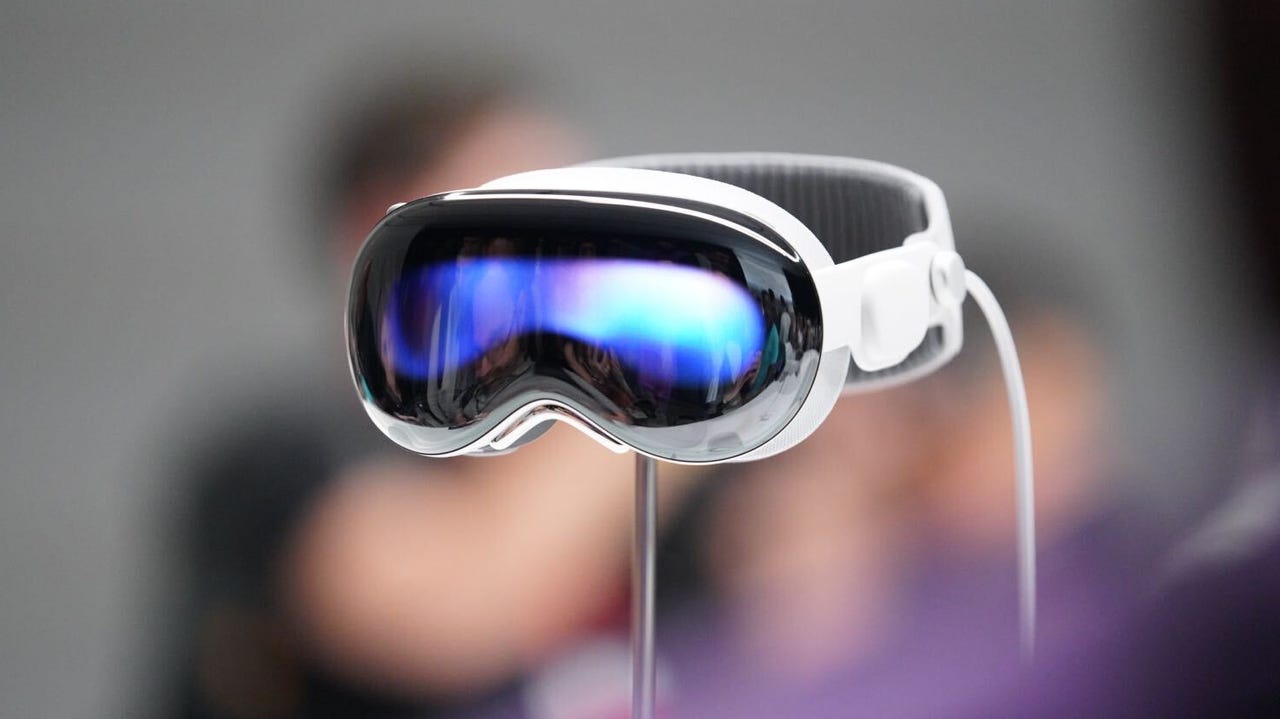































 Jason Hiner/
Jason Hiner/ Just a month ago, Apple kicked off its worldwide developer labs program for the company's upcoming Vision Pro headset, allowing developers to go hands-on with the unreleased hardware, test their apps andservices, and have a better understanding of the untapped mixed reality platform.
Also:I tried Apple Vision Pro and it's far ahead of where I expected
While the official launch of the Vision Pro is still seasons away, a recent Apple press release shed light on how developers have been taking advantage of these hands-on labs, including first reactions to seeing their experiences through the lens of the Vision Pro.
Michael Simmons, who's led the team behind popular productivity appsFantasticaland Cardhopdescribed his experience as "like seeingFantasticalfor the first time. It felt like I was part of the app." By the time his test session was over, the big takeaway was that "Experiencing spatial computing not only validated the designs we'd been thinking about -- it helped us start thinking not just about left to right or up and down but beyond borders at all."
"The first time you see your own app running for real, that's when you get the audible gasp," adds David Smith, podcaster and developer ofWidgetsmith.
Also: Apple releases VisionOS SDK, developers can apply for Vision Pro hardware kit
To be clear, the reactions are published by Apple, so take them with a grain of salt. What's generally exciting to see is how the experimentation of 3D user interfaces is allowing developers to reimagine what's possible.
Developers can test drive their apps with a headset at Apple's Vision Pro labs.
Apple"It instantly got me thinking about how 3D offerings and visuals could come forward in our experiences," says Chris Delbuck, principal design technologist at Slack, in the Apple press release. Delbuck had first planned to test the iPadOS version of Slack on the Vision Pro, only to realize how much more potential there was in upgrading the UX to suit VisionOS' added layer of depth.
Also: Samsung's answer to Apple Vision Pro is on track to be announced soon
Apple's developer labs, situated in Cupertino, London, Munich, Shanghai, Singapore, and Tokyo, serve as in-person consultations for select VisionOS app developers, with the main criteria being that the VisionOS app should be in active development or is based on an existing iPadOS or iOS service. If eligible, all that's needed is a Mac computer, the code, and a form of transportation (at your expense) to a nearby lab.
The latter requirement alone may be enough to sway potential developers away from testing their services at a Vision Pro lab. East Coast developers in the US, for example, would have to fly across the country to sample the headset. But for those who can't wait to see how their apps and services are presented in the spatial computing world, there's no better opportunity than now.
 Tags quentes :
Tecnologia
Vestíveis
Tags quentes :
Tecnologia
Vestíveis